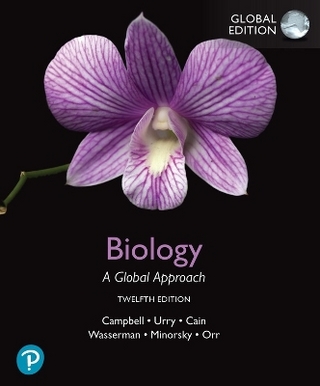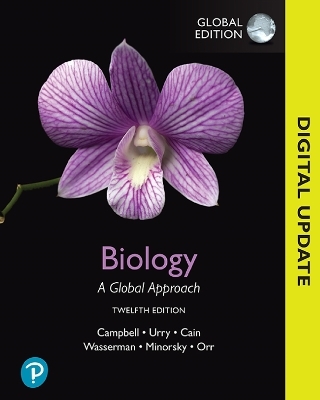
Insect Outbreaks Revisited
John Wiley & Sons Inc (Hersteller)
978-1-118-29520-5 (ISBN)
- Keine Verlagsinformationen verfügbar
- Artikel merken
Pedro Barbosa was born in Guayama, Puerto Rico and raised in Spanish Harlem, in New York City. He received his B.S. in biology from the City College of New York and his M.S. and Ph.D. at the University of Massachusetts, Amherst. Pedro's research interests are in theoretical and applied ecology of plant-insect interactions with an emphasis on tri-trophic interactions. He has authored or coauthored many refereed publications, and written or edited 13 books. Deborah K. Letourneau 's Bachelor's, Master's and doctoral degrees are from the University of Michigan and University of California at Berkeley. As Professor of Environmental Studies at the University of California, Santa Cruz her research concerns plant-insect interactions, biodiversity, and environmental risk in the context of decision-making that sustains both livelihoods and the environment. Anurag A. Agrawal studies the evolutionary ecology of plants and insects as a professor at Cornell University's Department of Ecology and Evolutionary Biology and Department of Entomology. His work spans community ecology, invasive species, coevolution, and ecological genetics. Please visit his lab website www.herbivory.com for current projects and research.
Contributors viii Acknowledgments xi Preface xii PART I PHYSIOLOGICAL AND LIFE HISTORY PERSPECTIVES 1 1 Insect Herbivore Outbreaks Viewed through a Physiological Framework: Insights from Orthoptera 3 Spencer T. Behmer and Anthony Joern 2 The Dynamical Effects of Interactions between Inducible Plant Resistance and Food Limitation during Insect Outbreaks 30 Karen C. Abbott 3 Immune Responses and Their Potential Role in Insect Outbreaks 47 J. Gwen Shlichta and Angela M. Smilanich 4 The Role of Ecological Stoichiometry in Outbreaks of Insect Herbivores 71 Eric M. Lind and Pedro Barbosa PART II POPULATION DYNAMICS AND MULTISPECIES INTERACTIONS 89 5 Plant-Induced Responses and Herbivore Population Dynamics 91 Andre Kessler, Katja Poveda, and Erik H. Poelman 6 Spatial Synchrony of Insect Outbreaks 113 Andrew M. Liebhold, Kyle J. Haynes, and Ottar N. Bjornstad 7 What Tree-Ring Reconstruction Tells Us about Conifer Defoliator Outbreaks 126 Ann M. Lynch 8 Insect-Associated Microorganisms and Their Possible Role in Outbreaks 155 Yasmin J. Cardoza, Richard W. Hofstetter, and Fernando E. Vega PART III POPULATION, COMMUNITY, AND ECOSYSTEM ECOLOGY 175 9 Life History Traits and Host Plant Use in Defoliators and Bark Beetles: Implications for Population Dynamics 177 Julia Koricheva, Maartje J. Klapwijk, and Christer Bjorkman 10 The Ecological Consequences of Insect Outbreaks 197 Louie H. Yang 11 Insect Outbreaks in Tropical Forests: Patterns, Mechanisms, and Consequences 219 Lee A. Dyer, Walter P. Carson, and Egbert G. Leigh Jr. 12 Outbreaks and Ecosystem Services 246 Timothy D. Schowalter PART IV GENETICS AND EVOLUTION 267 13 Evidence for Outbreaks from the Fossil Record of Insect Herbivory 269 Conrad C. Labandeira 14 Implications of Host-Associated Differentiation in the Control of Pest Species 291 Raul F. Medina PART V APPLIED PERSPECTIVES 311 15 Disasters by Design: Outbreaks along Urban Gradients 313 Michael J. Raupp, Paula M. Shrewsbury, and Dan A. Herms 16 Resistance to Transgenic Crops and Pest Outbreaks 341 Bruce E. Tabashnik and Yves Carriere 17 Natural Enemies and Insect Outbreaks in Agriculture: A Landscape Perspective 355 J. Megan Woltz, Benjamin P. Werling, and Douglas A. Landis 18 Integrated Pest Management -- Outbreaks Prevented, Delayed, or Facilitated? 371 Deborah K. Letourneau 19 Insect Invasions: Lessons from Biological Control of Weeds 395 Peter B. McEvoy, Fritzi S. Grevstad, and Shon S. Schooler 20 Assessing the Impact of Climate Change on Outbreak Potential 429 Maartje J. Klapwijk, Matthew P. Ayres, Andrea Battisti, and Stig Larsson Subject Index 451 Taxonomic Index 459 Colour plate pages fall between pp. 196 and 197
| Erscheint lt. Verlag | 29.6.2012 |
|---|---|
| Verlagsort | New York |
| Sprache | englisch |
| Maße | 150 x 250 mm |
| Gewicht | 666 g |
| Themenwelt | Naturwissenschaften ► Biologie |
| Weitere Fachgebiete ► Land- / Forstwirtschaft / Fischerei | |
| ISBN-10 | 1-118-29520-X / 111829520X |
| ISBN-13 | 978-1-118-29520-5 / 9781118295205 |
| Zustand | Neuware |
| Haben Sie eine Frage zum Produkt? |
aus dem Bereich

